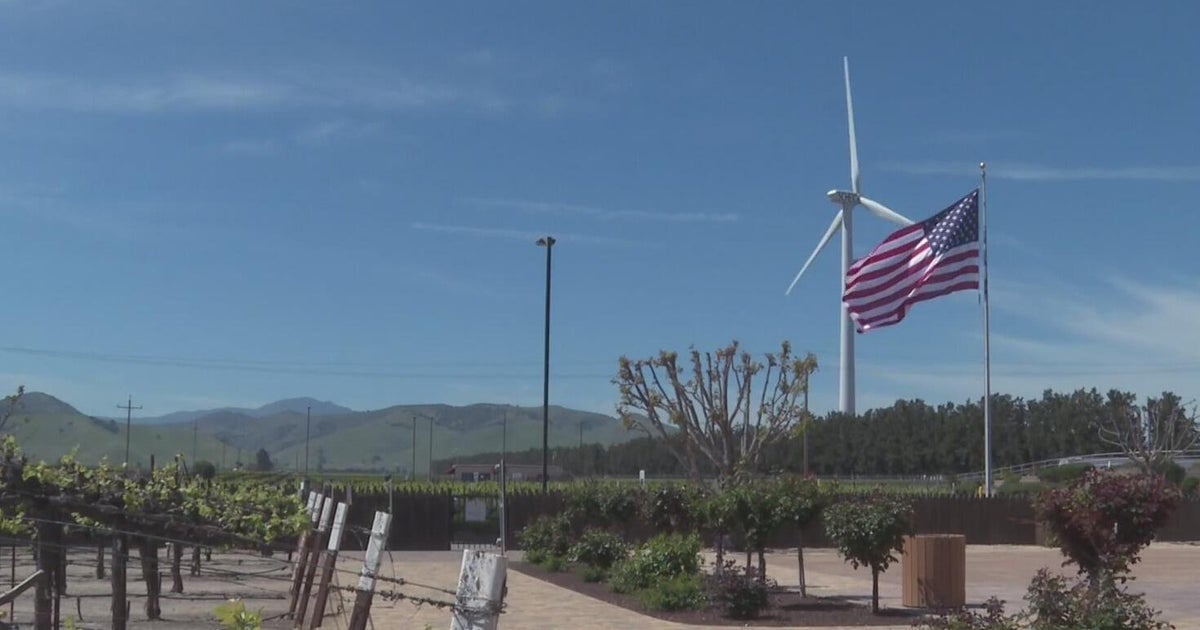'60 Minutes' Questions Whether Pelosi Traded Stock On Inside Information
(Editor's note: The following is an excerpt from a portion of a 60 Minutes segment entitled "Congress: Trading stock on inside information?" that aired Sun. Nov. 13 on KPIX-TV CBS 5 and KCBS All News 740 & FM 106.9)
WASHINGTON, D.C. (CBS News) -- It's but one more example of good things happening to powerful members of Congress -- access to initial public stock offerings, the opportunity to buy a new stock at insider prices just as it goes on the market. They can be incredibly lucrative and hard to get.
"If you were a senator, and I gave you $10,000 cash, one or both of us is probably gonna go to jail. But if I'm a corporate executive and you're a senator, and I give you IPO shares in stock and over the course of one day that stock nets you $100,000, that's completely legal," said Peter Schweizer, a fellow at the Hoover Institution, a conservative think tank at Stanford University.
Former U.S. House Speaker Nancy Pelosi (D-San Francisco) and her husband have participated in at least eight IPOs. One of those came in 2008, from Visa, just as a troublesome piece of legislation that would have hurt credit card companies, began making its way through the House. Undisturbed by a potential conflict of interest the Pelosis purchased 5,000 shares of Visa at the initial price of $44. Two days later it was trading at $64. The credit card legislation never made it to the floor of the House.
Congresswoman Pelosi declined a request from 60 Minutes Correspondent Steve Kroft for an interview on the subject, but agreed to call on him if he attended one of her regular news conferences.
Here's a transcript of the exchange during that news conference:
Kroft: Madam Leader, I wanted to ask you why you and your husband back in March of 2008 accepted and participated in a very large IPO deal from Visa at a time there was major legislation affecting the credit card companies making its way through the-- through the House.
Nancy Pelosi: But--
Kroft: And did you consider that to be a conflict of interest?
Pelosi: The-- y-- I-- I don't know what your point is of your question. Is there some point that you want to make with that?
Kroft: Well, I-- I-- I guess what I'm asking is do you think it's all right for a speaker to accept a very preferential, favorable stock deal?
Pelosi: Well, we didn't.
Kroft: You participated in the IPO. And at the time you were speaker of the House. You don't think it was a conflict of interest or had the appearance--
Pelosi: No, it was not--
Kroft: --of a conflict of interest?
Pelosi: --it doesn't-- it only has appearance if you decide that you're going to have-- elaborate on a false premise. But it-- it-- it's not true and that's that.
Kroft: I don't understand what part's not true.
Pelosi: Yes sir. That-- that I would act upon an investment.
Congresswoman Pelosi pointed out that the tough credit card legislation eventually passed, but it was two years later and was initiated in the U.S. Senate.
"I will hold my record in terms of fighting the credit card companies as speaker of the House or as a member of Congress up against anyone," Pelosi said.
Corporate executives, members of the executive branch and all federal judges are subject to strict conflict of interest rules. But not the people who write the laws.
"If you are a member of Congress and you sit on the defense committee, you are free to trade defense stock as much as you want to if you're on the Senate banking committee you can trade bank stock as much as you want and that regularly goes on-- in-- in all these committees," Schweizer observed.
Brian Baird, a former congressman from Washington state who served six terms in the House before retiring last year, spent half of those 12 years trying to get his colleagues to prohibit insider trading in Congress and establish some rules governing conflicts of interest.
How far did he get with this effort? "We didn't get anywhere. Just flat died. Went nowhere," he said.
"There should only be one thing in your mind when you're drafting legislation, 'Is this good for the United States of America?' That's it. If you're starting to say to yourself 'how's this going to affect my investments,' you've got-- you've got a mixed agenda and a mixed purpose for being there," Baird concluded.
(Copyright 2011 CBS San Francisco. All rights reserved.)



